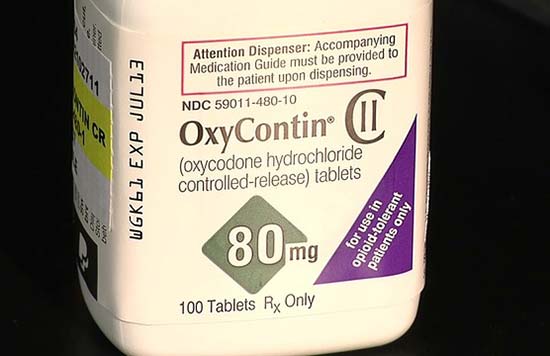BlueCross BlueShield of TN stopping coverage of OxyContin in 2019

KNOXVILLE, Tenn. (WATE) - The newest crackdown on painkiller prescriptions will begin in just under four months. BlueCross BlueShield of Tennessee announced Thursday they will no longer cover OxyContin prescriptions as a way to make an impact on the opioid crisis.
OxyContin will be replaced with medications designed with a lower risk to be abused, Xtampza and Morphabond.
Coverage changes will happen January 1, though Medicare, TennCare and those with cancer or end-of-life treatments will not be impacted.
"These efforts are motivated by a desire to ensure the safety and wellbeing of everyone in the state, not just the members we serve. Our clinical and social approach aims to help ensure that BlueCross members - and eventually all Tennesseans - receive the appropriate amount of opioids for their medical conditions while limiting the potential for misuse and abuse,"said Dr. Andrea Willis, Chief Medical Officer for BlueCross.
Starting January 1st, the following changes will include:
- A seven-day quantity limit for short-acting opioid prescriptions issued to members who are receiving the drug for the first time.
- An enhanced prior authorization requirement for extended use of short-acting opioids. Specifically, this will impact those who use more than 30 days’ worth of short-acting medication in a 90-day period.
- A lower threshold for morphine milligram equivalent dose (MME), with authorization required for more than 120 milligrams of opioids per day.
- Removal of OxyContin from the list of covered drugs, to be replaced with drugs less likely to be abused.
- Drug combination safety alerts for clinical teams and providers, which highlight inappropriate or dangerous drug combinations in order to promote appropriate use.
- Addition of a benefit for alternative pain therapy.
Pharmacist Josh Gass at Belew Drug explained how these changes could impact those who have chronic pain.
"This change in BlueCross BlueShield's formulary doesn't keep you from getting the product or the doctor prescribing it for you,"said Gass.
"They are just simply saying they will no longer cover it."
That means patients who use OxyContin, which is an extended release medication, will be paying for their prescriptions out of pocket. It could vary from a few hundred dollars to closer to a thousand dollars depending on the dosage and duration.
"I believe this move to use these two new products can definitely help and aid with some of the opiate problems. I do however think we can't limit our efforts with just formulary changes. It's going to take a variety of changes and implementations on all different levels of the healthcare process,"said Gass.
BlueCross BlueShield says they're working on educating all their network providers about the changes. They're also working with doctors on what's called a "decision support tree," ensuring best practices are followed when prescribing opioids.
July 1, Tennessee enacted one of the strictest and aggressive policies in the nation. Governor Bill Haslam's TN Together legislation limits the duration and dosage of opioid prescriptions. The plan focuses on three key areas: prevention, treatment and law enforcement.

